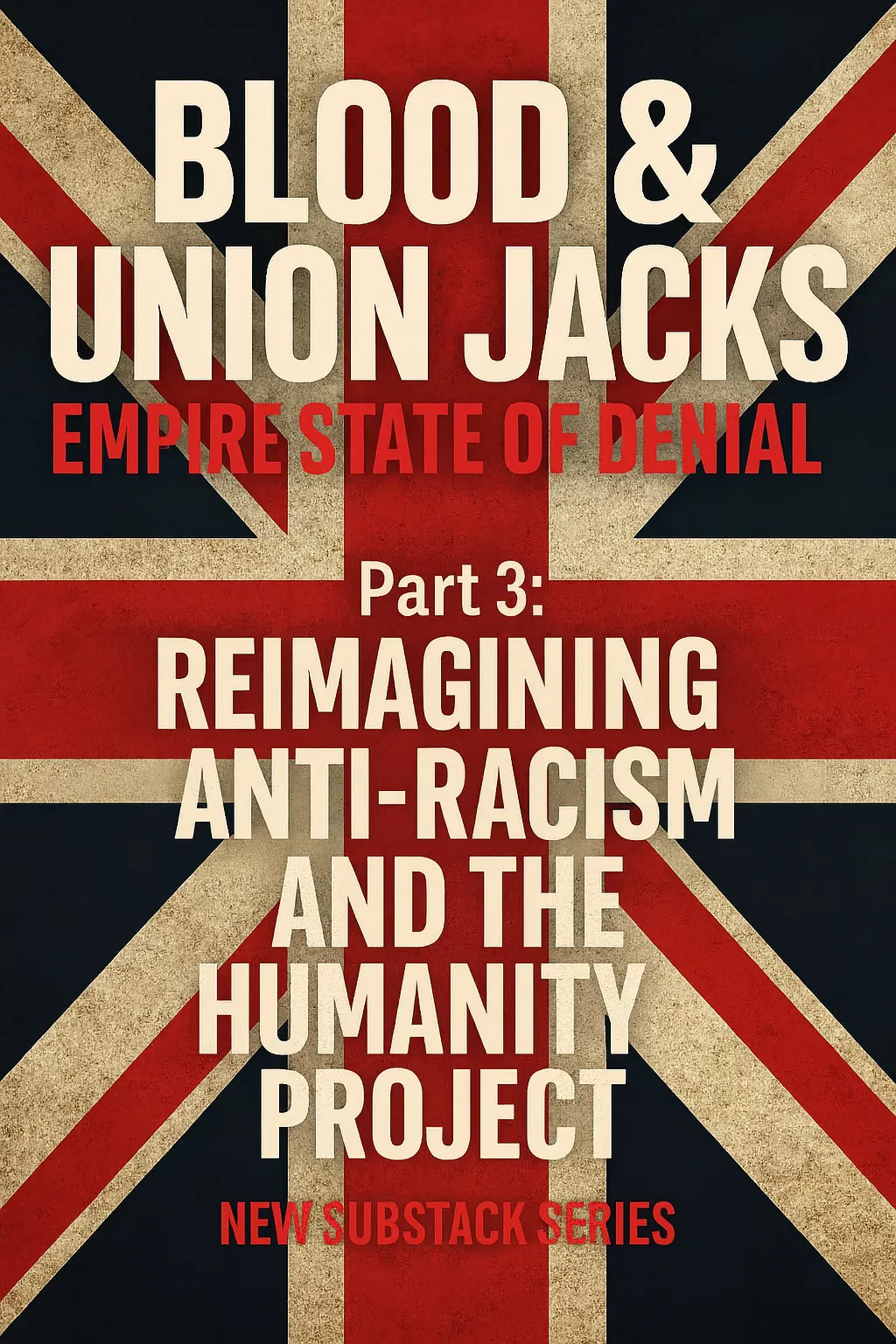The recent Unite the Kingdom march revealed the extent of Britain’s crisis. Under the Union Jack, tens of thousands gathered in a spectacle that exposed the fault lines of our democracy. The chants and violent scapegoating of migrants were not simply the excesses of the fringe. They were a symptom of a deeper national malaise, a society in denial about its past and unprepared for the future.
What makes this moment even more dangerous is the vacuum left by those who claim to lead the fight against racism. The official anti racist movement has become institutionalised and risk averse. Trade unions provide resources but insist on control, ensuring that campaigns rarely confront their own complicity. Local authorities present themselves as champions of equality even while their employment tribunals tell another story. Political parties mouth the language of justice but act as enablers of discrimination. In this climate, anti racism has been reduced to management rather than resistance, slogans rather than substance, spectacle rather than transformation.
We are confronting today’s realities with yesterday’s tools. The frameworks of the twentieth century, from the liberal language of equal opportunities to the old socialist binaries of class reductionism, cannot meet the scale of what we face. Racism has evolved. It is embedded in technology, from algorithmic bias to surveillance systems. It is entrenched in global supply chains that exploit racialised labour. It is maintained through border regimes and amplified by online disinformation. To respond with the same strategies and the same rhetoric is to guarantee failure.
At the same time, the world is in flames. Ecological collapse is no longer a warning but a lived reality. Economic inequality has reached grotesque levels, with wealth concentrated in the hands of a few and insecurity spread across the many. Authoritarianism feeds on fear and flourishes when communities are divided. In such a moment, anti racism cannot be treated as a narrow concern or a box to be ticked. It must be understood as central to the struggle for human survival. To oppose racism is to confront the systems that destroy lives, the political economy that relies on division, and the ecological crisis that exposes who is valued and who is disposable.
This was the central theme of yesterday’s webinar and it explains why it resonated so strongly. It was not another online event in a crowded calendar. It was a glimpse of the possible. People spoke across lines of race, class and generation. They began to shape a vision of a movement that does not only resist the hatred of the present but dares to imagine the society that could replace it. That is the work of the Humanity Project. It seeks to convene assemblies and conversations where the experience of injustice can be connected to the larger patterns of power, and where imagination can be turned into action.
Anti racism must cease to be a defensive posture. It must become a creative force, not merely a shield against bigotry but an engine of transformation. Imagine an anti racism that does not only fight fascists on the streets but redefines how we live, work and sustain one another. An anti racism that recognises the struggle against racial injustice as inseparable from the fight to save the environment and to reconstruct an economy based on fairness rather than exploitation. An anti racism that speaks both to the pain of minorities and to the despair of young people, the anger of working people, and the deep longing for belonging that runs through British life.
For me, Ben Okri’s Mental Fight is an epic millennial ode of hope, written in response to a deeply uncertain future. At the dawn of the twenty first century Okri recognised that despair was not inevitable, that imagination and solidarity could point to another path. That same message is even more urgent today, as we confront ecological collapse, economic precarity and the resurgence of organised racism.
“You can’t remake the world without remaking yourself. Each new era begins within.”
— Ben Okri, Mental Fight
This is the deeper meaning of anti racism in our time. It cannot be confined to policy or party. It must begin with inner liberation, a willingness to see the world as it is and to name injustice without hesitation, before extending outward to challenge and remake the systems that sustain inequality. Okri’s words were a summons for the millennium. Ours must be a summons for survival.
That is why we are calling for a new national conversation on race and racism. But more than a conversation, this is a collective act of imagination. We cannot rely on the dogmas of the last century. The old paradigms cannot save the planet, its people or the economy. Only a movement that connects the fight against racism to the fight for ecological and economic justice can meet the challenge of our age.
The Humanity Project is building that movement. We want you to be part of it. Not as spectators or donors but as co creators of a politics that does not settle for managing decline but sets out to ensure that life itself can flourish.
The time for caution has passed. The time to build is now.
Written by Lee Jasper, Chair APA





.png)




